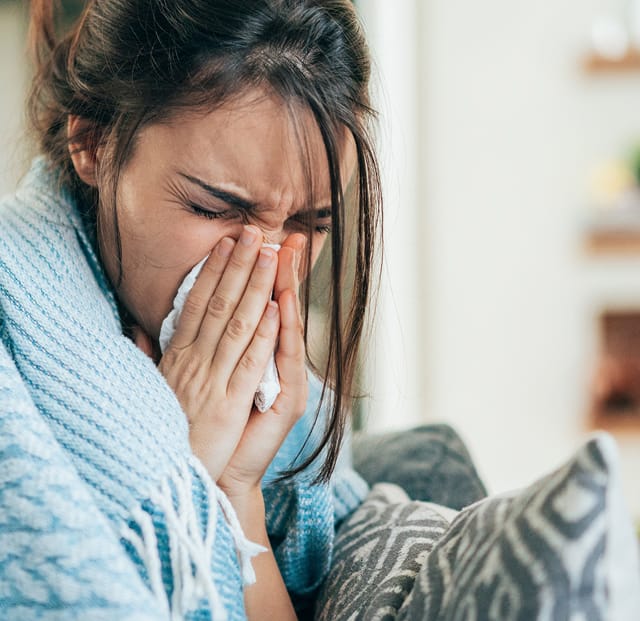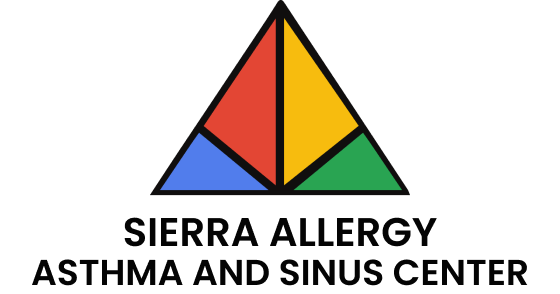
Understanding causes and symptoms of seasonal allergies
What triggers seasonal allergies in Fresno and Merced?
Seasonal allergies happen when your immune system reacts to airborne allergens like pollen, mold spores, and grasses. In Fresno and Merced, where agriculture and changing seasons play a big role, these allergens are especially active in spring, summer, and fall. Your body mistakenly identifies these particles as threats, releasing histamines that cause those all-too-familiar allergy symptoms.
The main seasonal allergy triggers

Pollen

Mold Spores

Dust and Pollution

Climate and Weather Changes


Recognizing the symptoms of seasonal allergies
Identifying the symptoms of seasonal allergies early is key to managing them. These symptoms can vary in severity and may range from mild irritations to more intense reactions that affect your daily activities. Common symptoms include:
Sneezing
Runny or Congested Nose
Itchy or Watery Eyes
Post-nasal Drip
Sinus Pressure or Headaches
Fatigue
Coughing or Throat Irritation
Triggered by post-nasal drip or direct allergic response.
Wheezing or Shortness of Breath
Customizing your allergy management plan
Spring Allergies
Summer Allergies
Fall Allergies
Mold Allergies

Wondering which allergen is triggering your symptoms?
When to seek professional help
If you experience persistent allergy symptoms that affect your quality of life or worsen over time, it may be time to consult an allergy specialist. Untreated seasonal allergies can lead to more severe problems, including:
- • Sinus infections
- • Asthma flare-ups
- • Chronic ear infections
- • Difficulty sleeping
- • Worsened asthma or respiratory issues
Experts at Sierra Allergy, Asthma, and Sinus Center specialize in identifying the specific triggers behind your symptoms and offering tailored solutions that provide relief.

Ready to breathe easy?
Understanding the causes and symptoms of seasonal allergies is the first step in finding lasting relief. If you’re ready to take control of your allergies, our team at Sierra Allergy, Asthma, and Sinus Center is here to help. Our experienced providers will work with you to create a personalized treatment plan to help you manage symptoms and improve your quality of life.
Frequently Asked Questions
What are the most common causes of seasonal allergies?
The primary causes of seasonal allergies include pollen from trees, grasses, and weeds, as well as mold spores. These allergens are most prevalent during specific seasons, such as spring, summer, and fall. Pollen and mold spores are carried by the wind and can trigger allergic reactions when they come into contact with the body.
How can I tell if I have seasonal allergies or a common cold?
Seasonal allergies are often confused with the common cold, but there are key differences. Allergies typically cause sneezing, a runny or stuffy nose, itchy or watery eyes, and a scratchy throat without fever. Cold symptoms, on the other hand, may include fatigue, body aches, and a sore throat with a possible fever. If your symptoms last more than a week or occur at certain times of the year, they’re more likely due to allergies.
Can seasonal allergies be prevented?
While it may not be possible to completely prevent seasonal allergies, you can take steps to minimize your exposure to allergens. These include staying indoors during peak pollen times, using air purifiers, wearing sunglasses to protect your eyes, and keeping windows closed during allergy season. Additionally, regular cleaning to reduce dust and mold in your home can help alleviate symptoms.
How are seasonal allergies treated?
Treatment for seasonal allergies may include over-the-counter antihistamines, nasal sprays, and eye drops. In some cases, a doctor may prescribe allergy medications or recommend allergy shots (immunotherapy) to help reduce sensitivity to allergens. At Sierra Allergy, Asthma, and Sinus Center, we provide personalized treatment plans that may include a combination of medications, lifestyle changes, and other interventions.
When should I see an allergy specialist for seasonal allergies?
If your symptoms are frequent, severe, or persistent despite using over-the-counter medications, it’s time to see an allergy specialist. A healthcare provider can perform tests to determine the specific triggers causing your symptoms and recommend a more effective treatment plan. If allergies are affecting your quality of life, such as interfering with your sleep or work, it’s important to get professional help.
